Where you can study
International students
International students are not New Zealand citizens or residents.
Specialise in Creative Writing for your Bachelor of Arts at Massey
Inspiration, communication and vocation are at the heart of Massey’s exciting Bachelor of Arts (Creative Writing).
It offers you the chance to develop your writing so that it’s pitch-perfect for a variety of audiences. You’ll enhance your critical thinking and master a wide range of transferable communication skills while pursuing your own creative vision.
Choose your canvas
Creative writing offers you flexibility in writing original work in a variety of genres. Learn to write fiction, poetry, creative non-fiction, travel writing, and scripts for the stage and screen.
Learn from published authors
Our award-winning teachers are internationally acclaimed writers in their own right. They teach from their own first-hand experience in moving from idea to page, polishing their work and sending it off to be published or performed.
Get real
Your third year has a vocational focus. You’ll develop your writing in a genre of your choice and learn how to submit it for publishing. You’ll also have the opportunity to gain hands-on editing and publishing experience, or facilitate a creative writing arts project in your local community.
Get published
Students who have taken our creative writing courses have gone on to publish poems, stories, essays and books as well as winning some of New Zealand’s top writing prizes. Why not join them?
A Bachelor of Arts in Creative Writing is a good fit if you:
- are seeking opportunities to get creative, get writing and get published
- want practical writing experience in a range of genres
- enjoy critical and creative thinking.
Planning information
If you study full time, in the first year you’ll take eight 15-credit courses, making a total of 120 credits.
If you wish to study over two semesters, you should aim for 60 credits per semester. You may be able to take some courses at summer school if you wish. Make sure you include courses that are prerequisites for the next level of courses you wish to study.
You need to pass five courses at 300-level for your BA. One of these (230310) is in the compulsory core and three are required for your major. If you are not taking a double major or a minor, you will need to take one 300-level elective course to meet this requirement.
About this major
The Creative Writing major in the Bachelor of Arts consists of 120 credits.
Minors
Completing a minor is optional. Minors increase the breadth of your degree. They give you extra knowledge, attributes and capabilities.
A minor must be in a different subject from your major.
A Bachelor of Arts (Creative Writing) with a minor
You may choose a minor from the Bachelor of Arts, Bachelor of Business or Bachelor of Science. If the minor is from another degree the regulations of that qualification will apply.
A creative writing minor (for students who are studying a different degree)
If you are not studying towards a BA (Creative Writing) and wish to complete a minor in creative writing see the BA regulations for requirements.
Official regulations
To understand what you need to study and must complete to graduate read the official rules and regulations for this qualification.
You should read these together with all other relevant Statutes and Regulations of the University including the General Regulations for Undergraduate Degrees, Undergraduate Diplomas, Undergraduate Certificates, Graduate Diplomas and Graduate Certificates.
Returning students
For returning students, there may be changes to the majors and minors available and the courses you need to take. Go to the section called ‘Transitional Provisions’ in the Regulations to find out more.
In some cases the qualification or specialisation you enrolled in may be no longer be taking new enrolments, so may not appear on these web pages. To find information on the regulations for these qualifications go to the Massey University Calendar.
Please contact us through the Enquire button on this page if you have any questions.
Courses you can enrol in
Course planning key
- Prerequisites
- Courses that need to be completed before moving onto a course at the next level. For example, a lot of 200-level courses have 100-level prerequisite courses.
- Corequisites
- Courses that must be completed at the same time as another course are known as corequisite courses.
- Restrictions
- Some courses are restricted against each other because their content is similar. This means you can only choose one of the offered courses to study and credit to your qualification.
Core courses for the Bachelor of Arts
As well as the specialisation courses listed below, this qualification has core courses that you will need to complete.
Creative Writing courses
Compulsory courses
Course code: 139123 Creative Writing I 15 credits
An exploration of the processes involved in writing poetry and short stories. Students learn the fundamental elements of craft, such as metaphor, structure and plot, through the close reading of published poetry and fiction, through their own practice as creative writers, and through providing and receiving workshop feedback.
View full course detailsCourse code: 139280 Creative Writing II: Creative Nonfiction 15 credits
An intermediate-level introduction to the craft of nonfiction writing in a variety of genres, with a particular focus on the application of techniques usually associated with fiction and poetry to nonfiction material.
View full course detailsCourse code: 139380 Creative Writing III: Starting Your Manuscript 15 credits
An advanced study of the process of writing that consolidates knowledge of creative writing craft, expands understanding of genre, and analyses aesthetic and/or cultural aspects of published manuscripts across genres. The first portion of an envisioned full-length creative manuscript will be drafted with an emphasis on the critical evaluation of its aesthetic and/or cultural implications.
View full course detailsSubject courses
Course code: 139223 Creative Processes 15 credits
An investigation of human creativity that involves the study of creative practice and the making of original works of performance, film and writing.
View full course detailsCourse code: 139224 Making Plays for Theatre 15 credits
Students will receive a grounding in the skills of writing experimental theatre and an opportunity to employ these skills in the creation of original scripts.
View full course detailsCourse code: 139225 Writing for Children 15 credits
An intermediate-level introduction to the craft of writing targeted at ‘middle readers’ – roughly 9-13 years – across a variety of forms.
View full course detailsCourse code: 139229 Writing Poetry 15 credits
A creative writing course in which students develop and advance poetry skills within the major modes of lyric poetry and within the context of a more advanced engagement with fundamental elements of craft. In addition to reading poetry and critical essays on the genre, students will write original poetry and critically review their own work and the work of peers.
View full course detailsCourse code: 139285 Fiction Writing 15 credits
An intermediate-level study of the craft of fiction, investigating a range of forms by means of creative production, workshopping and peer review.
View full course detailsCourse code: 139309 Eco-fictions and Non-fictions 15 credits
A study of the relationships between creative writing and ecological concerns, covering a range of contemporary forms from eco-fictions, nonfictions, or poetry, to nature writing, to animal stories. It engages students in the workshopped production of original creative work.
View full course detailsCourse code: 139323 Script Writing 15 credits
An in-depth study of the skills, formats, technique and terminology of professional script writing, with emphasis on the adaptation of traditional approaches across the diversity of contemporary media.
View full course detailsCourse code: 139326 Travel Writing 15 credits
A study of travel writing, involving both critical and ideological analysis and creative writing developed from the students' own field work.
View full course detailsCourse code: 139329 Advanced Fiction Writing 15 credits
An exploration of the poetics and politics of experimentation and subversion in contemporary fiction and metafiction including analysis of the work (both creative and critical) of major practitioners, theorists and original student compositions.
View full course detailsCourse code: 139333 Creativity in the Community 15 credits
The course provides an applied service learning project in the disciplines of expressive arts and media studies. Working collaboratively, students apply skills in theatre, performance, film-making, creative writing, media practice or mixed media to developing a creative response to a social issue or community need.
View full course detailsCourse code: 139340 The Publishing Project 15 credits
In this course, students study and experience the principles, processes and practice of publishing, through the co-production of an online publication. Key concepts include teamwork, co-production, theme selection, peer review, production scheduling, source selection, and online publishing.
View full course detailsCourse code: 139362 Oceanic Literatures of Aotearoa: Ngā Tuhinga Kōrero o te Moana nui a Kiwa 15 credits
A study of contemporary Oceanic (Māori and Pasifika) literature in English contextualised in relation to customary and pre-colonial Oceanic literatures, narratives, and storytelling methods.
View full course detailsElective subject courses
Course code: 139109 Prize-Winning Fiction 15 credits
A study of short stories, novellas and novels from the last 50 years emphasising the varieties of award-winning fiction.
View full course detailsCourse code: 139139 Introduction to English Literature 15 credits
An introduction to the nature and functions of literary texts and the ways in which they are invested with meaning, with a focus on the skills necessary for reading and writing critically about them.
View full course detailsEntry requirements
Admission to Massey
All students must meet university entrance requirements to be admitted to the University.
Specific requirements
There are no specific entry requirements for the Bachelor of Arts (Creative Writing), outside of university admission regulations.
English language requirements
To study this qualification you must meet Massey University's English language standards.
If you have already completed a bachelor degree
If you have already completed a bachelor degree you may replace 230111 Tū Kupu: Writing and Inquiry or 230112 Tū Arohae: Critical Thinking with courses of your choice. You will need to apply for replacement courses via a Special permission request in your portal and you will need to attach evidence of your completed degree with the request.
English language skills
If you need help with your English language skills before you start university, see our English for Academic Purposes (EAP) courses.
Fees and scholarships
Fees, student loans and free fees scheme
Your tuition fees may be different depending on the courses you choose. Your exact fees will show once you have chosen your courses.
There will also be some compulsory non-tuition fees and for some courses, there may also be charges for things such as study resources, software, trips and contact workshops.
- Get an estimate of the tuition fees for your qualification
- View a list of non-tuition fees that may be payable
Already know which courses you're going to choose?
You can view fees for the courses that make up your qualification on the course details pages.
Student loans (StudyLink) and Fees Free scheme
You may be eligible for a student loan to help towards paying your fees.
The New Zealand Government offers fees-free tertiary study for eligible domestic students. Find out more about the scheme and your eligibility on the Fees Free website. To use the site's eligibility checking tool, you will need your National Student Number.
Current and returning Massey students can find their National Student Number in the student portal.
- Student loans (StudyLink)
- Fees Free
- Student portal
Scholarship and award opportunities
Find more scholarships and awardsFees disclaimer
This information is for estimation purposes only. Actual fees payable will be finalised on confirmation of enrolment. Unless otherwise stated, all fees shown are quoted in New Zealand dollars and include Goods and Services Tax, if any. Before relying on any information on these pages you should also read the University's Disclaimer Notice.
Careers and job opportunities
A Bachelor of Arts (Creative Writing) is one of the most creative and enriching degrees you can do. Employers seek out BA students for their lateral and analytical thinking, communication skills and creative ability.
There are various possibilities for creative writing graduates, including:
- writing for television, magazines, blogs or the book-publishing industry
- corporate or non-profit freelance writing
- creative arts project coordination
- inter-arts collaboration for arts festivals
- writing for public relations
- creative writing in advertising
- working in communications
- being a journalist
- teaching
- performance-related writing and production
- writing and advising on government policy
- writing for social media.
International students
New Zealand is a great place to study. Massey University’s reputation is supported by our international rankings, accreditations and associations. We are rated five star plus by the QS World University Rankings.
Plan your courses
View your course options and plan your study using our course planner.
Related study options
Creative Writing – Graduate Certificate in Arts
With a Graduate Certificate in Arts (Creative Writing) you’ll examine inspiring creative writing and start developing your own.
Creative Writing – Diploma in Arts
With a Diploma in Arts (Creative Writing) you will examine inspiring creative works and explore your personal creative approach through poetry, life writing, scriptwriting, and fiction.
Creative Writing – Graduate Diploma in Arts
Examine great creative works and start writing your own. The Graduate Diploma in Arts (Creative Writing) will give you the equivalent of an undergraduate major in creative writing without completing a second bachelor’s degree.
English – Graduate Certificate in Arts
Understand how words shape our world with the Graduate Certificate in Arts (English).
English – Bachelor of Arts (Honours)
With Massey’s Bachelor of Arts (Honours) (English), you can take your undergraduate study of English further.
English – Bachelor of Arts
Develop your passion for literature. Understand how great writing has shaped identity, culture, and society.
English – Diploma in Arts
Do you have a passion for literature? The Diploma in Arts (English) will give you versatile and transferable skills that can open many career pathways.
English – Postgraduate Diploma in Arts
A Massey Postgraduate Diploma in Arts (English) will help you understand how language shapes the world we live in.
English – Master of Arts
With Massey’s Master of Arts (English) you can build on your undergraduate study and follow your passion for literature. Complete advanced research into an aspect of English, rhetoric or theatre studies.
English – Graduate Diploma in Arts
The Graduate Diploma in Arts (English) will give you the equivalent of an undergraduate major in English without having to complete a second bachelor’s degree.
Master of Creative Writing – MCW
Use your passion for writing to transform yourself and the world through an intense exploration of language.
Creating writing teachers
.
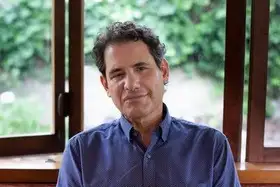
Professor Bryan Walpert
Bryan is the author of three poetry collections, most recently Native Bird; a novel, Late Sonata; a collection of short stories, Ephraim’s Eyes, and two scholarly books, Resistance to Science in Contemporary American Poetry and Poetry and Mindfulness: Interruption to a Journey. He has received writing awards in New Zealand, Australia and the US.
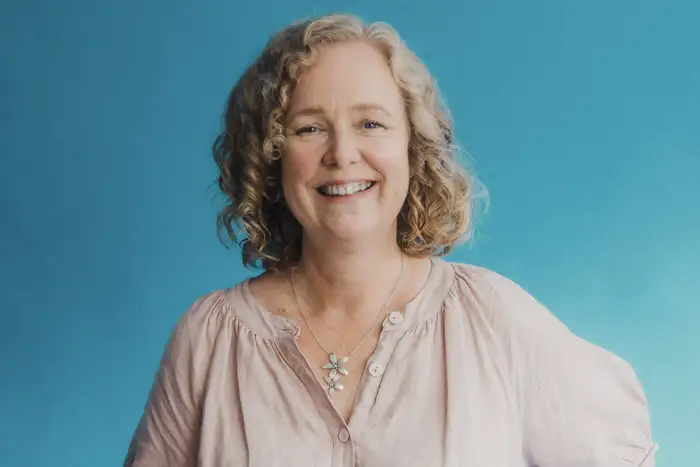
Professor Elspeth Tilley
Elspeth is a three-time winner of the British Theatre Challenge international playwriting competition and a three-time official playwright for Climate Change Theatre Action. Her award-winning plays have been published and produced globally including off-Broadway and off-West End. Elspeth received the 2018 College of Humanities & Social Sciences award for Sustained Excellence in Teaching.

Dr Gigi Fenster
Gigi's first novel, The Intentions Book, was a finalist in the New Zealand book awards and was longlisted for the IMPAC Dublin Award and Commonwealth Prize. Her second novel, A Good Winter, won the Michael Gifkins Award and was a finalist in the Ockham Fiction Awards. Her memoir, Feverish, was born out of her creative writing PhD. Gigi is currently working on a children's nonfiction book and novel.
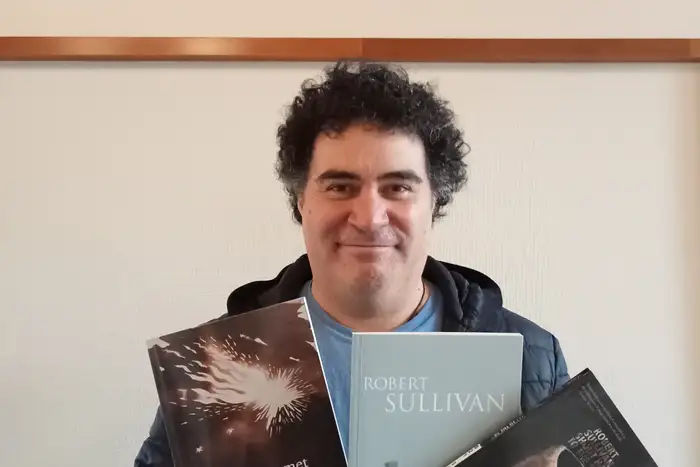
Associate Professor Robert Sullivan
Robert has won the 2022 Lauris Edmond Memorial Award for his contribution to New Zealand poetry, the Montana New Zealand Book Award for co-editing Whetu Moana: Contemporary Polynesian Poems in English, the Māori Literature Award for co-editing Puna Wai Kōrero: An Anthology of Māori Poetry in English, and the New Zealand Post Children’s Book of the Year.
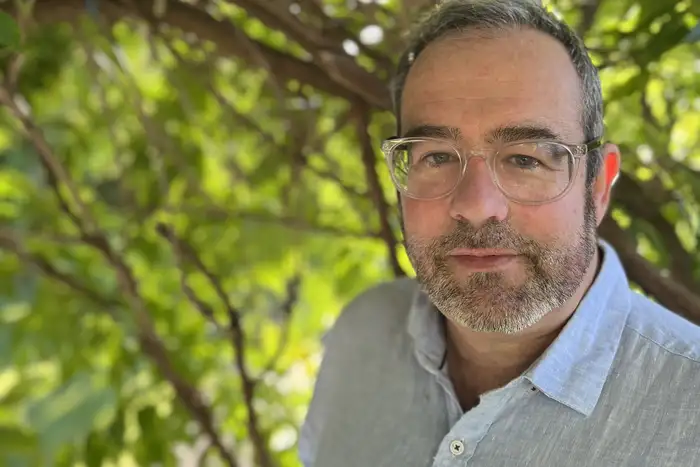
Dr Thom Conroy
Thom is currently a Senior Lecturer in Creative Writing and is also Editor-in-Chief of the literary journal Headland.
Thom has authored The Salted Air and The Naturalist (Penguin Random-House) and is editor of the personal essay collection Home (Massey University Press). He has won the Katherine Anne Porter Fiction Prize and has published short fiction in literary journals.
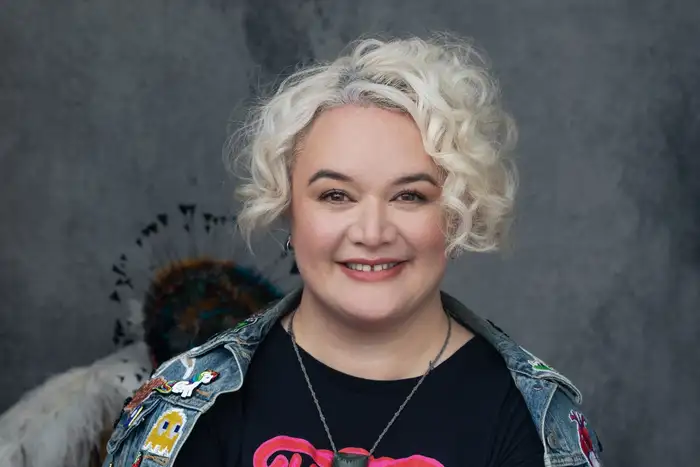
Whiti Hereaka
Whiti Hereaka is a novelist and playwright based in Wellington. She is the author of four novels: The Graphologist’s Apprentice, and the award-winning YA novels Bugs, Legacy and her latest novel Kurangaituku. Legacy won the New Zealand Children’s and Young Adult Book Award for YA fiction in 2019 and Kurangaituku won the 2022 Jann Medlicott Acorn Award for fiction at the Ockham New Zealand Book Awards.
Useful planning information

Key information for students
Compare qualifications and academic information across different New Zealand institutions. Learn more on careers.govt.nz